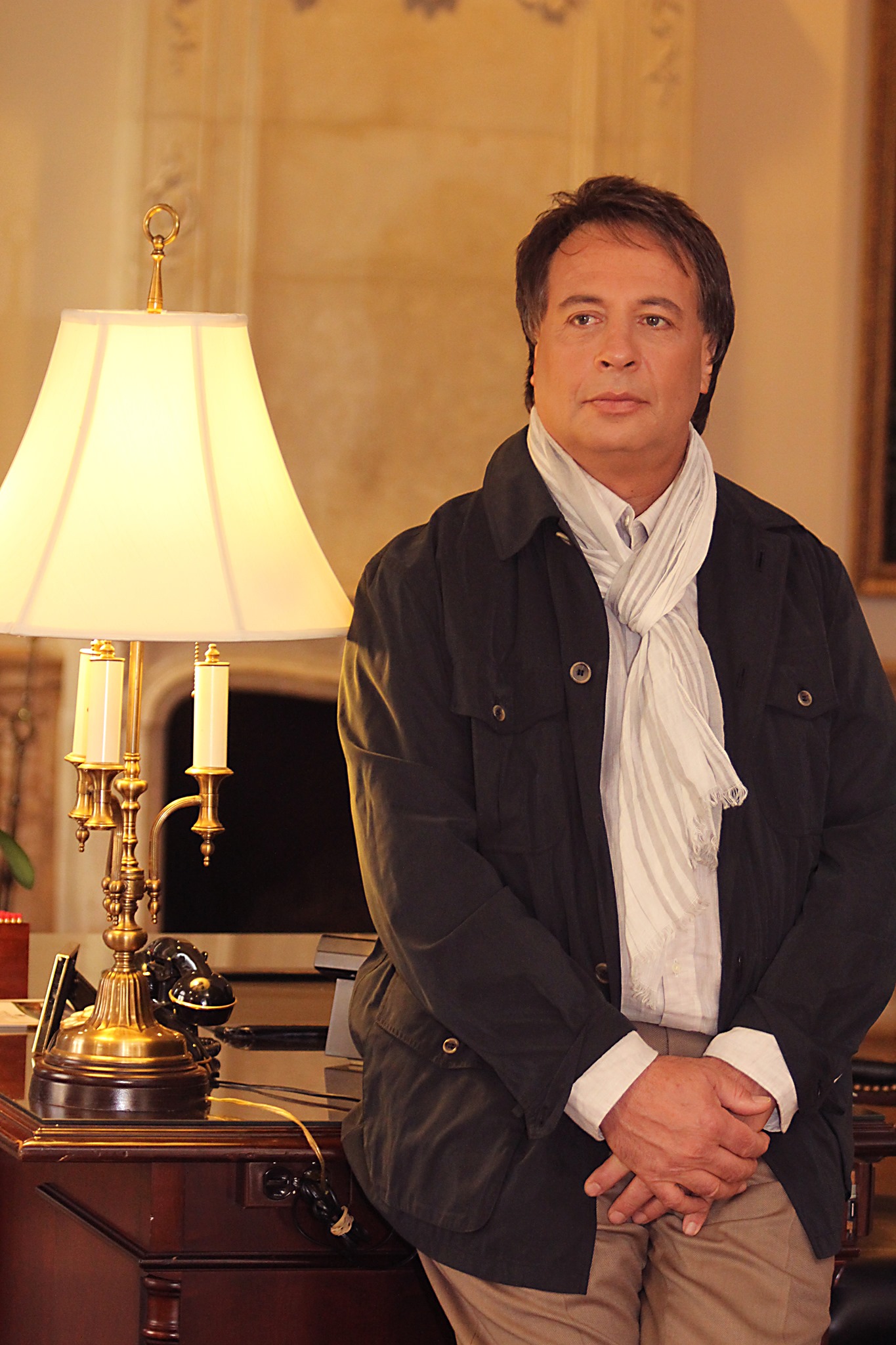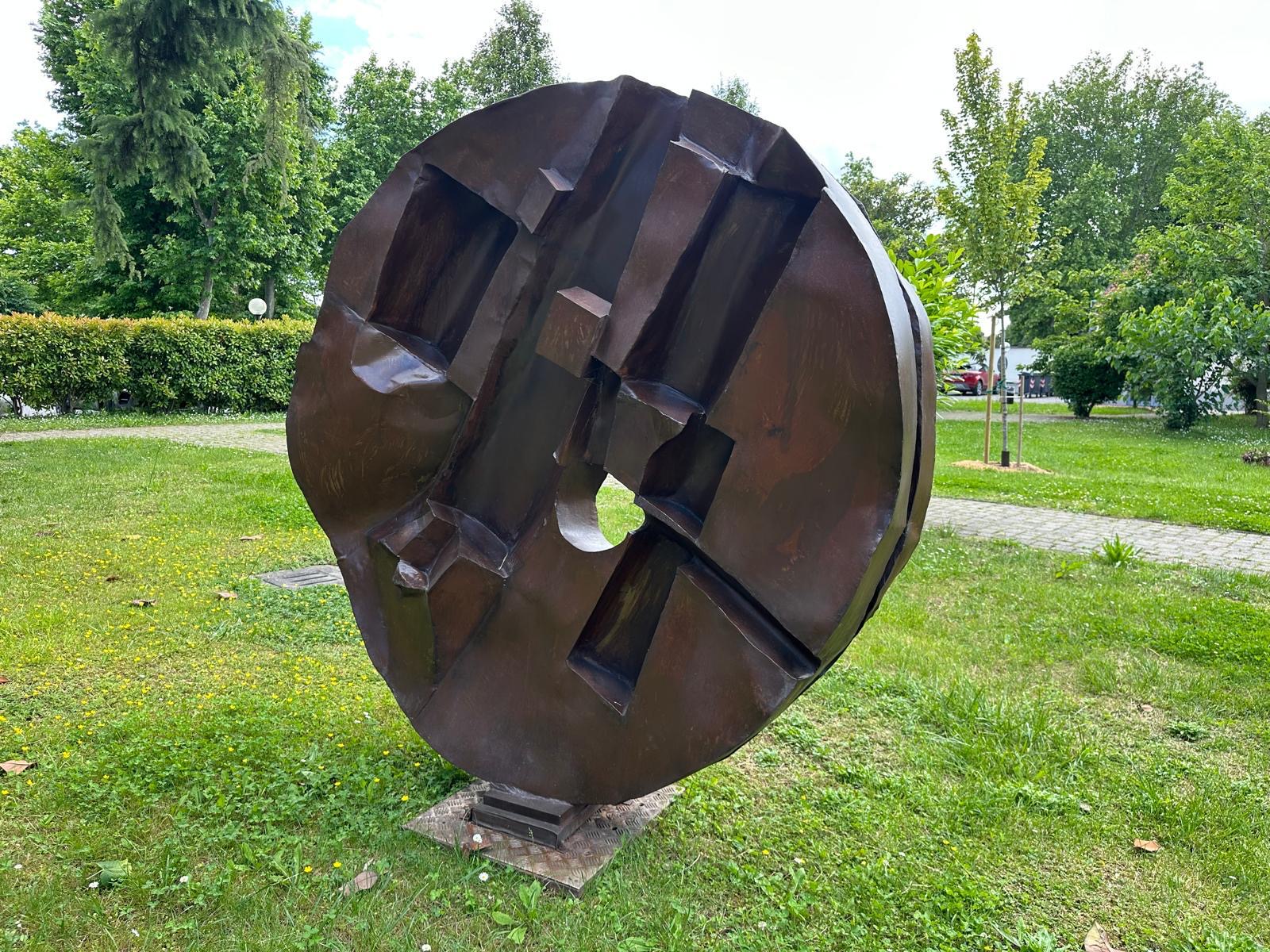Alexander, Kanevsky. Artista, amico, uomo buono, padre esemplare
In questi giorni ci ha lasciati Alexander Kanevsky, e con lui se n’è andata una voce intensa e necessaria dell’arte contemporanea. Ma, ancor più, se n’è andato un uomo straordinario, un amico autentico, una presenza capace di offrire bontà, intelligenza e profondità con una naturalezza rara.
Alexander era una di quelle persone che si possono definire buone non in senso generico, ma profondo, radicato: un uomo che ascoltava, che cercava il bene, che amava sinceramente. E che, come pochi, ha saputo portare questa nobiltà interiore nella sua arte, senza compromessi né artifici.
 La sua pittura, colta e viscerale, è stata una continua indagine sul senso dell’esistere. Figlio di una formazione scientifica (ha studiato oncologia), Alexander ha saputo trasferire sulle tele la sua inquietudine e la sua ricerca, incarnando nel corpo umano — dipinto, scolpito, interpretato — le contraddizioni, le ferite, ma anche la spiritualità possibile del nostro tempo.
La sua pittura, colta e viscerale, è stata una continua indagine sul senso dell’esistere. Figlio di una formazione scientifica (ha studiato oncologia), Alexander ha saputo trasferire sulle tele la sua inquietudine e la sua ricerca, incarnando nel corpo umano — dipinto, scolpito, interpretato — le contraddizioni, le ferite, ma anche la spiritualità possibile del nostro tempo.
Tutto, nella sua opera, è simbolo. Nulla è casuale. Ogni dettaglio – ogni torsione, ogni espressione, ogni colore – diventa parte di un linguaggio universale, che invita lo spettatore a mettersi in discussione, a varcare soglie interiori. I suoi quadri sono specchi che non riflettono l’apparenza, ma l’anima.
Lo dimostrano le tante esposizioni in giro per il mondo – da Milano a Treviso, da New Delhi a Nairobi – e la presenza autorevole nelle pagine dell’Enciclopedia d’Arte Italiana; ma, soprattutto, lo dimostra la coerenza con cui Alexander ha vissuto la sua vocazione. Era un artista nel senso più puro del termine: uno che non si limitava a “fare arte”, ma che era arte. Anche nel modo in cui parlava, amava, viveva.
Non posso dimenticare il nostro ultimo incontro a Milano, quando mi raccontasti con amarezza come molti, ai quali avevi dato fiducia, avevano approfittato della tua bontà e del tuo credere sempre nella buona fede dell’animo umano. Ricordo che con noi c’era anche Giorgio Ramella (Enciclopedia d’Arte Italiana), per il quale nutrivi grande stima e affetto. E non posso dimenticare ciò che ci eravamo promessi, ma che purtroppo rimarrà per sempre solo nel mio cuore.
E non posso non ricordare, accanto all’artista e all’amico, anche il padre: presente, affettuoso, sempre innamorato della sua famiglia. Questo aspetto privato, per chi lo ha conosciuto davvero, era la radice profonda della sua umanità.
Oggi resta il dolore per la sua perdita, ma anche la gratitudine per averlo incontrato. La sua opera continuerà a parlare per lui. Continuerà a indicarci, con forza e delicatezza, la strada verso una verità interiore che spesso sfugge, ma che lui ha saputo inseguire con coraggio.
Grazie, Alexander. Ci lasci un’eredità immensa.
Ti porteremo con noi, ogni volta che cercheremo la bellezza, ogni volta che vorremo comprendere davvero l’animo umano.
Alberto Moioli
Video di diversi anni fa al Museo d’Arte e Scienza di Milano
Articolo sull’Adorazione dei magi – Alexander Kanevsky
traduzione automatica
In Memory of Alexander Kanevsky
Artist, kind man, exemplary father
In recent days, Alexander Kanevsky has left us — and with him, a powerful and necessary voice in contemporary art has gone silent. But more than that, we have lost an extraordinary man, a true friend, a presence capable of offering kindness, intelligence, and depth with rare natural grace.
Alexander was one of those people you could truly call good — not in a vague or generic sense, but in a profound and rooted way: a man who listened, who sought what was right, who loved sincerely. And, like few others, he knew how to carry that inner nobility into his art, without compromise or pretense.
His painting — cultured and visceral — was a constant investigation into the meaning of existence. With a background in science (he studied oncology), Alexander poured his restlessness and search onto the canvas, embodying in the human figure — painted, sculpted, interpreted — the contradictions, the wounds, but also the spiritual potential of our time.
In his work, everything is symbolic. Nothing is left to chance. Every detail — every twist, every expression, every color — becomes part of a universal language that invites the viewer to question themselves, to cross inner thresholds. His paintings are mirrors that do not reflect appearances, but the soul.
This is shown by the many exhibitions he held around the world — from Milan to Treviso, from New Delhi to Nairobi — and by his distinguished presence in the pages of the Encyclopedia of Italian Art. But above all, it is demonstrated by the consistency with which Alexander lived his vocation. He was an artist in the truest sense of the word: not someone who merely made art, but someone who was art — even in the way he spoke, loved, and lived.
I cannot forget our last meeting in Milan, when you told me, with sadness, how many of those you had trusted had taken advantage of your goodness and your belief in the good faith of the human spirit. I remember that Giorgio Ramella (of the Encyclopedia of Italian Art) was with us — a man you held in high esteem and affection. And I cannot forget what we had promised each other that day — something that, sadly, will remain forever only in my heart.
And I must also remember, alongside the artist and the friend, the father: ever-present, affectionate, and always deeply in love with his family. For those who truly knew him, this private side was the deep root of his humanity.
Today, there is the pain of his loss, but also the gratitude for having known him. His work will continue to speak for him. It will continue to guide us — with strength and delicacy — toward an inner truth that often escapes us, but which he pursued with unwavering courage.
Thank you, Alexander. You leave behind a vast legacy.
We will carry you with us every time we seek beauty, every time we truly want to understand the human soul.

